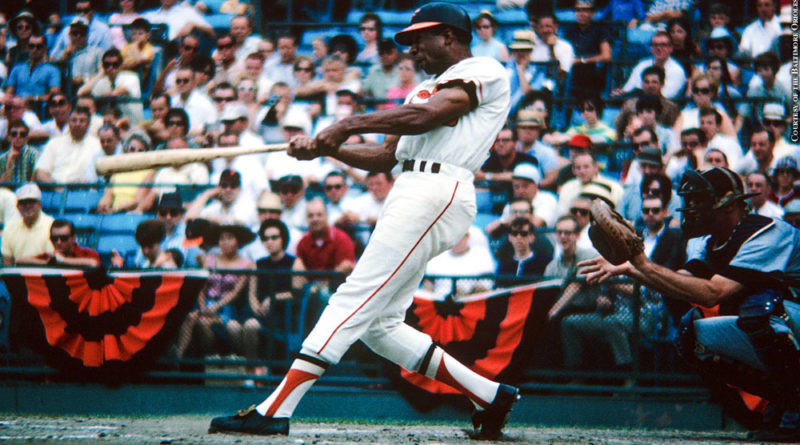When the Cincinnati Reds traded Frank Robinson, whom Reds owner Bill DeWitt deemed “not a young 30,” to the Orioles in December 1965, Baltimore didn’t simply get a player with MVP-caliber production with the bat and Gold Glove fielding ability.
According to his longtime teammate Boog Powell, Robinson immediately provided something Powell said the Orioles lacked during the 1965 season despite winning 94 games: attitude.
“We were too gentlemanly,” Powell said on Glenn Clark Radio Feb. 8, recalling Robinson castigating his Orioles teammates for chatting with opposing players when they got on base. “[Robinson would say], ‘We’re going to kick these guys’ butts today and you’re over here romancing him, and the next minute you might be breaking up a double play and trying to break his leg. If you want to romance them, take them out to dinner after the game, not during the game and not before the game.'”
“When Frank played the game, that’s what he did,” Powell said. “Pretty soon we caught on to that.”
Robinson’s influence worked. The Orioles went on to win the franchise’s first World Series in 1966. Robinson earned American League MVP honors after hitting .316 with 49 home runs and 122 RBIs – which won him the Triple Crown. His teammate Brooks Robinson finished second in the voting. Powell finished third.
If Frank Robinson was angry about being traded by the Reds, he only showed it when he played, according to Powell.
“He took no prisoners out there on the field,” Powell said.
Off the field, Robinson’s attitude disappeared, Powell said, recalling long hours shared talking about what else? Baseball.
“Actually, I learned more about baseball sitting in a tavern after a game or sitting there having dinner after the game than sometimes I did during the game because guys would talk about certain aspects of the game, like what pitch to look for in a certain situation and what a pitcher might be trying to do to you,” Powell said. “Frank was an expert on that.”
During his six seasons with the Orioles, Robinson held “Kangaroo Courts” where small fines would be handed out for errors or other on-field mistakes. Powell and his teammates loved it.
“As a kangaroo-court judge, he was … unbelievable,” Powell said. “It was something good for our team because it brought what was happening that day to the forefront. If you left a runner on third base with less than two outs it cost you a dollar and that was terrible. It wasn’t the dollar but the acknowledgment that you left the guy on third.”
There hasn’t been Orioles player like Robinson since he was traded in 1971, Powell said. It was his ability to lead on the field and speak directly to his teammates about issues that made him one of a kind.
“Frank was unique,” he said. “He led both ways — he led by example and if he saw something and it bothered him it didn’t go long before he would say something to you about it, and he didn’t say anything to management or anything else. He would say something directly to the ballplayer and that’s good stuff.”
Robinson died Feb. 8 at the age of 83. He will be remembered as one of the greatest Orioles of all time and for breaking the color barrier as the first African-American manager in MLB history with the Cleveland Indians in 1975.
“I didn’t see somebody as black. I didn’t see somebody as some other color. He was one of my teammates,” Powell said. “He was the best I played with. … I could say he was the greatest and nobody would disagree with me.”
For more from Powell, listen to the full interview here:
Photo Credit: Courtesy of the Baltimore Orioles

